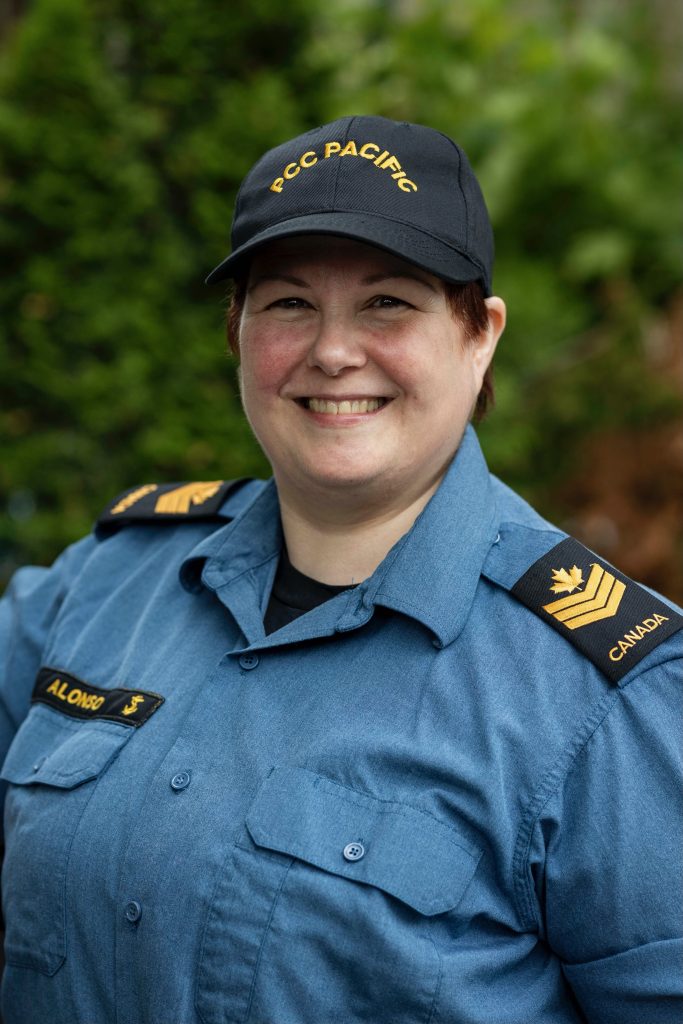
RCN Digital Leadership: PO2 Julie Alonso
By Naval Personnel and Training Group
In this series, we showcase digital leadership across the Royal Canadian Navy to illustrate how our enterprise solutions are successfully leveraged for the benefit of our teams.
Originally from the south shore of Montreal, Petty Officer 2nd Class Julie Alonso joined the Royal Canadian Navy as a Reservist in November 2006. Her brother was in the Army and suggested that she join the Naval Reserve since she liked being outside, working with (and on) the water, and the environment (she studied to be an environmental technician during CEGEP). In 2010, she was introduced to IT fundamentals while sailing on the Maritime Coastal Defence Vessels as a NAVCOM. In 2013, she was posted to the NAVRES HQ Help desk as an IT technician, providing support for any IT and DWAN issues reported by Reserve units. While working for NAVRES HQ, she earned a certificate in networking via College O’Sullivan on her own time to support her skills development.
Julie was posted to Personnel Coordination Centre Pacific in 2018 as a Personnel Controller and is currently the 2IC of her section, the Data Fusion Cell (DFC). In this role, she helps ensure that the information within Ship’s NOMAD and the shore image in Monitor Mass (MM) reflects the RCN’s actual personnel taskings. She often helps the PCC MCS Support Cell with troubleshooting and makes suggestions regarding fixes. She also provides support to the Naval Personnel Management Business Technology Team which works directly with MCSC to manage requirements.
MM and CFTPO are the key players in Julie’s workday. She relies on MM to ensure the information on the ship’s personnel and their movements are accurate, not conflicting, and reflect reality. She uses CFTPO to create and amend sailing bricks and uses it as a tool to confirm member’s movements.
While Julie’s team works on site at CFB Esquimalt, she herself lives in Gatineau and works remotely from home. Without Microsoft Teams, she would not be able to perform her current supervisory role remotely – it’s a critical tool for awareness. She also relies on someone on site to relay the sections whereabouts and issues. On average, she visits quarterly – with plenty of warning for the rest of the team!
For those wishing to develop their tech skills, Julie suggests the following:
- Study on your own initiative, if possible
- Take your time and make sure you are thorough
- Be persistent
- Pay close attention to detail
- Don’t make any assumptions
- Always confirm with another source
- Trace your way back when troubleshooting
- Google is your friend. It’s a great tool for research!






